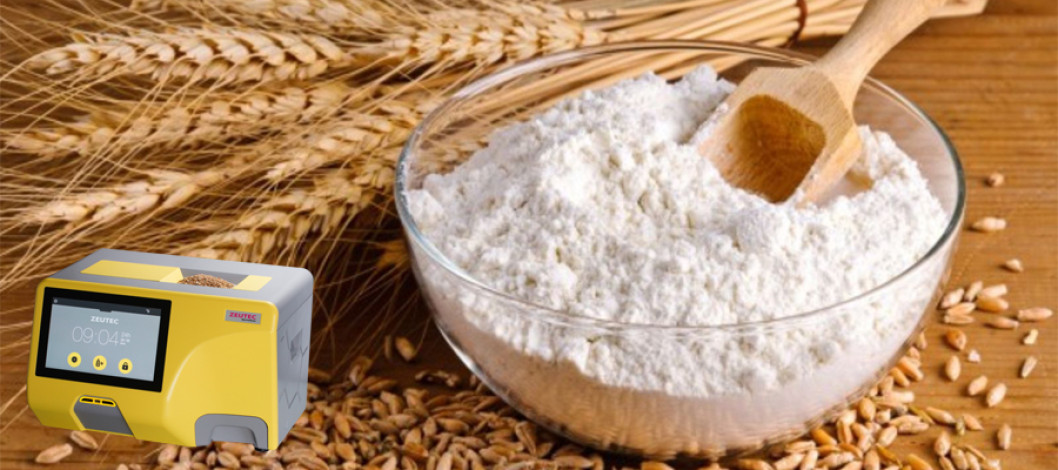
File Photo
Accidents involving food safety are a genuine concern these
days, prompting elevated vigilance and strict inspections in the production chain.
From farmlands to dinner plates, every phase of the whole food production
process needs to be scrutinized. Food and agriculture quality standards are
crucial to regulatory bodies and customers. It’s your responsibility to
demonstrate integrity and ensure safety from the source, whether you are a
producer, food packer, or any other vital function in the food supply chain.
It’s your responsibility to demonstrate integrity and support safety from the
source, whether you are a producer, food packer, or playing any other vital
function in the food supply chain. However, these guarantees can only be
provided if the growing, processing, procurement, and shipping processes are
periodically checked and tested by specialized personnel.
To provide adequate consumer protection and facilitate
trade, an acceptable level of food quality and safety is required. There are
Food testing and analysis standards for domestic and international processes, a
range of standards related to microbiology detection, pesticide residue
detection, physio-chemical analysis, etc. Factory/store audit standards:
ISO9001, ISO14000, ISO22000, HACCP. These goals can be met by introducing and
monitoring quality assurance methods across the food chain where appropriate
and feasible. Everyone involved in the food industry, from the farmer to the
consumer, bears responsibility for keeping the food supply secure by taking the
required procedures to keep food safe from dangers that can increase human
health risks. These efforts will also avoid or reduce food losses, which is
especially crucial when food security is at stake.
The enforcement of quality assurance measures begins on the
farm with the use of good agricultural practices (GAPs). GAPs help in the production of safe and high-quality food while also being ecologically friendly
and ensuring proper product handling, storage, transportation, and management.
The proper implementation of GAP in the development of primary food crops creates confidence among consumers. Revenue will invariably fall short of its
maximum potential in the absence of an accurate system for grading grain and
figuring out how to separate it. Investing in a high-quality grain analyzer
will help you optimize the profits from your harvest and, will enable you to
assess the effectiveness. In agricultural trade, suppliers are paid based on
the quality of the raw materials. The importance of risk management is
drastically intensified by climate change, extreme weather events, and increased
humidity during harvest, transport, and storage. It ultimately affects the
nutrient quality of the grains. Hence, reliable grain analysis replaces manual
intervention and estimation with certainty when determining moisture, protein,
hardness, oil percentage, etc. ensuring no deception is at risk and offering
buyers the best value for their produce.
While NIR- technology is a relatively new development in the Food
quality check industry but it is now becoming popular due to its convenience as
compared to other methods. These NIR-based Grain analyzers can analyze the
physio-chemical properties of the grains without harming the sample. Currently, there are many companies in the market that are manufacturing and marketing the NIR
instruments for Grain Analysis. Let us introduce one of those companies which is
emerging as the market leader in this industry:
How ZEUTEC contributes
to the QC of food grains
ZEUTEC GmbH is one of the market leaders in NIR instruments
for agriculture and food products. The company manufactures instruments that
are widely used in routine analysis of the agri, food, feed, and chemical
industry as well as in research institutions and universities worldwide.
ZEUTEC’s Grain analyzer instrument works on the NIR/NIT technology for the analysis
of all kinds of grains, oil seeds, cereals, and pulses like wheat, mustard, rye,
oats, rice, corn, etc. Sanjit Mullick, Vice President-Asia Operations, says the
instrument can not only analyze the grains, but it is also capable of analyzing the
quality of flour, and semolina with an additional Flour Module, providing the buyer
an extra benefit of analyzing all the physio-chemical properties of the crops -
ultimately helps the farmers to get the extra wealth out of their harvest. It
can measure moisture, protein, ash, starch, gluten, sedimentation, test weight, and many other parameters with no grinding or other sample preparation. The
instrument provides reliability and consistency despite the environmental
conditions, and operating temperature due to its rugged design. The instrument is a
standalone instrument with a bigger touchscreen display. It allows the user to
quickly analyze and store the real-time data on-field or on the factory site.
ZEUTEC Grain analyzer comes with a cloud storage feature, which allows the
users to access their data from anywhere anytime through their laptop, PC,
tablet, or mobile phone. The instrument is having a scope USB port, RS232 port
via which data can be easily transferred. All these features make it an ideal
choice for fast and accurate whole-grain testing.
Written & Compiled by: Mr. Sanjit Mullick (Managing Director), Ms. Sushree Samal (Application Specialist), ZEUTEC GmbH, Sabi Cottage, 681, Kavery Layout, H.A. Farm Post, Dasarahalli, Bangalore – 560024, Karnataka, India. T: +917003752371, Email:sushree@zeutec.com
Source: Email/GFMM
Comment Now